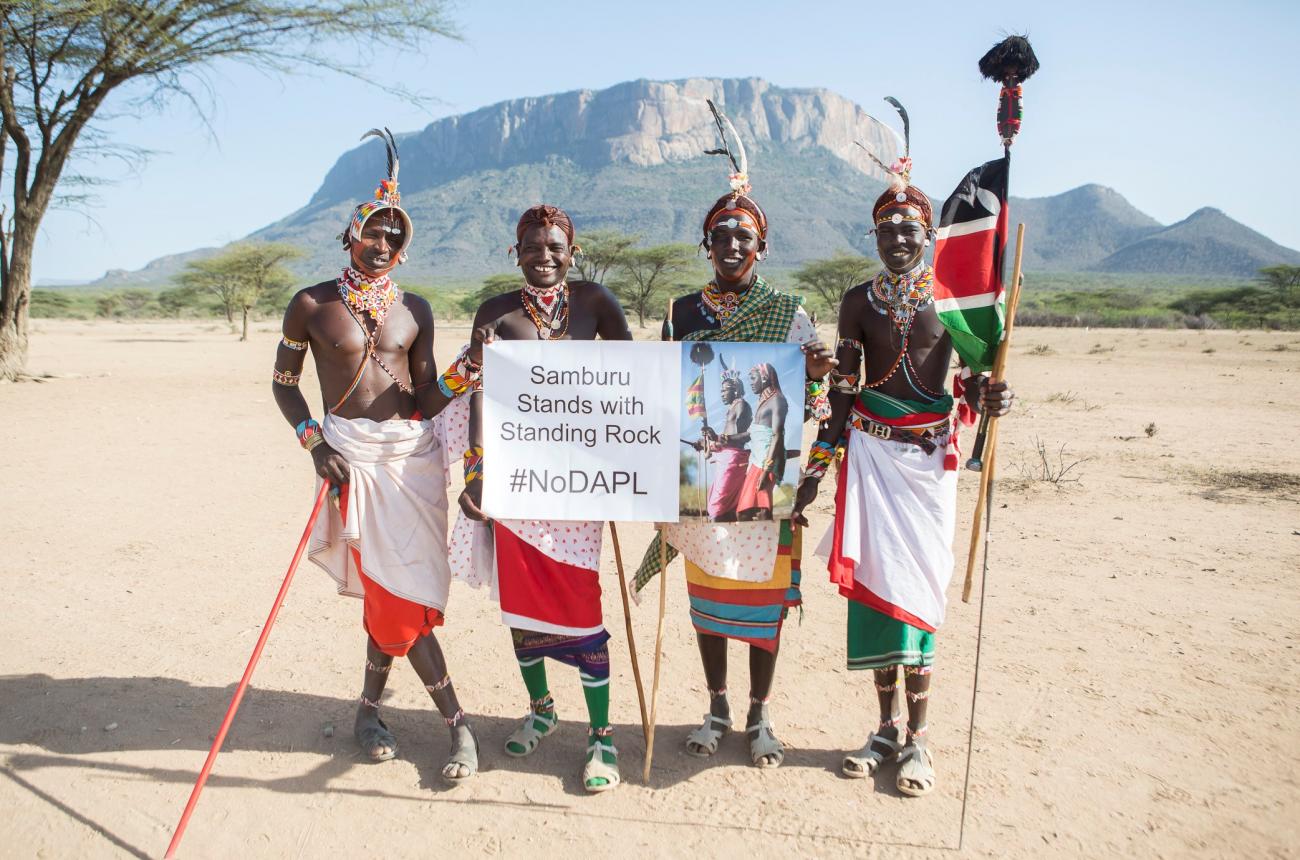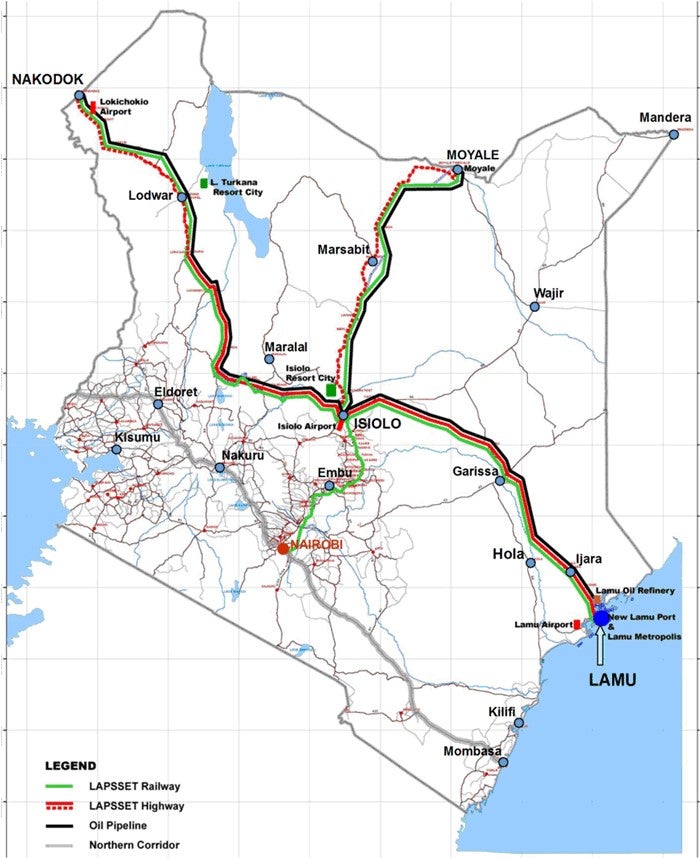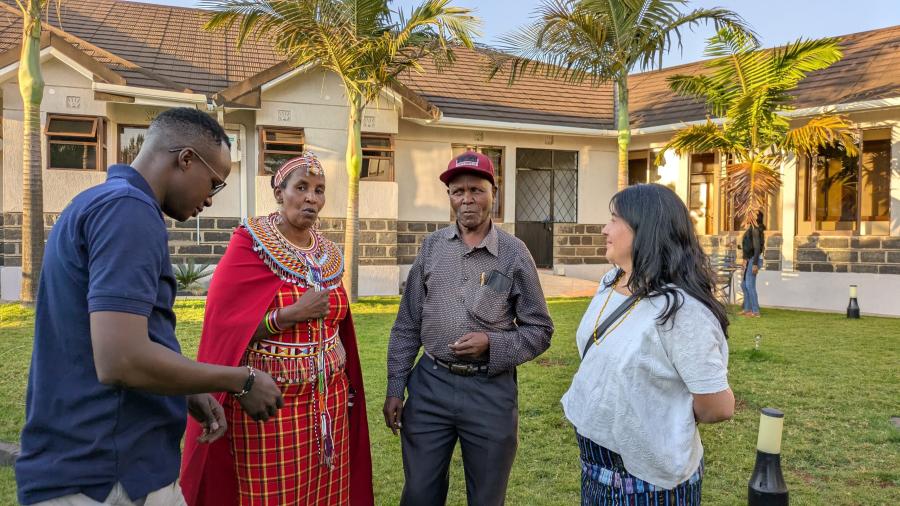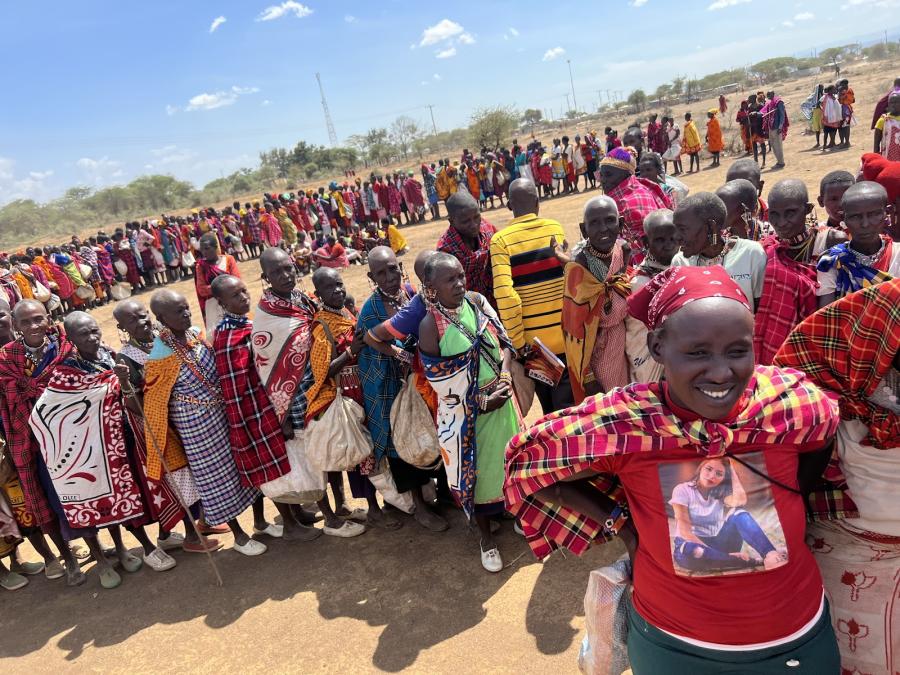
Photo by Julia Cumes / Samburu Watch
As a presidential memorandum aims to intimidate the resistance against the Dakota Access oil pipeline passing through the Standing Rock Sioux’s lands in North Dakota, Indigenous Peoples from all over the world have come out to show their solidarity while they, too, fight oil pipelines crossing their lands without their consent.
The Samburu community in Kenya demonstrated their support in a photo taken on January 2017. For the Samburu, a semi-nomadic Indigenous tribe from Kenya, the fight to protect their homelands and their water from oil development hits close to home. Dipa Lenaya, community leader, explained that when the Chinese government crossed their lands in searching for and now transporting oil, thousands of Samburu were displaced, brutalized by security forces, and their homes and lands were destroyed. The tribe faces the same fear of negligent oil spills that could harm people, wildlife, and their environment and water sources. “We all need to stand together as Indigenous tribes across the globe to protect the earth and our own lands,” he urged.
Naomi Leki, a leader in the community, who coordinates 6,000 women across Samburu county including 35 women’s cooperatives, shared, “Myself and the women of Samburu stand with the women and families of Standing Rock who are facing great injustice on their ancestral lands.” The Samburu face similar struggles, by those who wish to develop their lands, use their resources, and damage their environment without consideration or compensation for the damage left behind, she explained.
The Samburu are semi-nomadic and maintain a traditional lifestyle which centers around cattle herding. They have increasingly faced police violence and eviction from their lands to make way for nature reserves and tourist safaris that exclude their presence on the land. As this forced relocation, in addition to climate change, pushes them to migrate further and further to access clean water for themselves and their cattle, the communities encounter violence from police and competing tribes. In 2009, a peak of state-sponsored violence saw beatings of hundreds of Samburu across five villages, killing five people and leaving many more seriously injured. The acts were the subject of an investigative report by Cultural Survival, titled When the Police are the Perpetrators.
Today, the Samburu are facing a massive development project across their lands known as LAPSSET, which contemplates the construction of two oil pipelines, a highway, and railway cutting across the length of Kenya, as well as a dam, three international airports, three resort cities and a seaport.
 Source: LAPPSET project
Source: LAPPSET project



